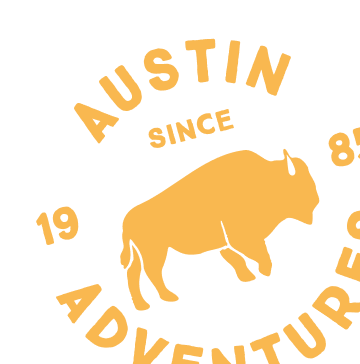

Check out our incredible adventures exploring the highlights and hidden gems of Africa!
If hiking to 'the roof of Africa' is more your thing, take a look at our Mount Kilimanjaro Trek, which follows the beautiful and remote Lemosho Route to the summit. Our Kilimanjaro Trek and Serengeti Safari are designed to work seamlessly together, so for the ultimate Tanzania experience, join us for just over two weeks - enough time to get in sync with the beat of Africa!
Activity Level 1
What's The Rush?
I'm active and in decent shape and not looking to experience a place just through a bus window. I'm happy to slow down on the trail, soak it in and breathe in the fresh air.
Walking: 2-3 hours per day on gentle-gradient trails.
Other activities: On these trips, you'll be taking part in a range of other activities that focus less on building up a sweat and more on enjoying the finer things in life.
Activity Level 2
On the Move
Sure, I own some hiking boots, they're even worn in, but they don't go on long trips. I like my creature comforts and I like to give a range of activities a go.
Walking: 2-4 hours per day on gentle to moderate gradient trails. No multi-day hikes.
Biking: 1-3 hours, cruisy rides achievable by anyone, even first-timers. Kayaking: 1-3 hours, entry-level sea kayaking with specialist guides and stable boats.
Other activities (i.e. snorkeling): Always optional and very little exertion required. A highlight for many!
Activity Level 3
Step It Up
I love an active vacation. Engaging in a challenging activity with a difficult goal, such as reaching a summit, is exactly what I need to unwind in the evenings.
Hiking: Typically, 3-6 hours per day on well-formed backcountry trails. Expect some significant gradient inclines and declines.
Altitude: Your trip may include some moderate altitude areas, though these don't form the focus of the trip and are generally manageable.
Biking: 1-3 hours on well-formed paths or roads where you can expect some hills with moderate climbs and descents.
Kayaking: 1-3 hours, entry-level sea kayaking with specialist guides and stable boats.
Other activities (i.e. caving): Always optional and very little exertion required. A highlight for many!
Activity Level 4
Challenge Accepted
I'll let my trusty guides sweat the small things, so I can focus on my goal. Getting to the top, reaching the end, achieving my dreams! Sure, it'll be tough, but the views will be worth it.
Hiking / Trekking: Typically, 4–6-hour hikes with options for more, sometimes with limited or no vehicle support and nearly always with ascents and descents.
Altitude: Some trips at this level will reach a significant altitude. We are here to help you manage that and make your experience one to cherish for a lifetime.
Biking & Kayaking: If one, or both, of these activities are 'your thing,' there are trip options in this range, allowing you to be on two wheels or with a paddle in your hand for most of the day.
Activity Level 5
The Upper Limit
I'm ready to put in the hard work to reap the rewards. I'm a seasoned adventurer, not afraid to get my boots wet.
Trekking & Altitude: This is classic trekking, at altitude. Some might even call it 'expedition-style.' We've had folks from all walks of life achieve their dreams on our grade 5 trips, so if you're in for a challenge get in touch to find out if this is for you.
Half price for Kids* on ALL our specially ‘made for families’ adventure vacations! A family fun-filled adventure is 100% guaranteed, exploring North America’s epic national parks. View all family adventures here.
Book now and create memories to last a lifetime out in the wild, together.
50% off kids offer ends April 30, 11:59 PM (Pacific Daylight Time).
*Terms & conditions apply – see below.
*Offer valid for new bookings made through April 30, 2024 (11:59 pm US PDT) for trips departing no later than June 30, 2025. A 50% discount applies to the full advertised adult trip price – not the discounted child concession price. Offer valid for up to two children 12 years and under who must be sharing rooms with at least one adult. To secure the booking and discount, a 50% deposit is due at time of booking. Your 50% deposit is non-refundable, non-cancellable, and non-changeable. If you change or cancel your trip, you will forfeit your 50% deposit, and no refunds will apply. Discount cannot be combined with any other offers. Other restrictions may apply. We highly recommend purchasing Cancel For Any Reason (CFAR) insurance. We recommend Redpoint Insurance – you can find details here.
show more
show less
With an average of 12 guests per departure and an industry-leading average 6:1 guest-to-guide ratio, you’ll enjoy a highly personalized experience.
It’s so much easier to relax and enjoy your adventure when you have fun, caring guides who know the land, sweat all the details and whip up incredible meals, too!
When we say all inclusive, we mean it! Meals and snacks, activities, lodging, transportation, guiding services and more. All you need to do is show up!
Every aspect of your trip is thoroughly considered for your safety, from highly vetted partners and well-maintained equipment to extensively trained guides.
Family travel and North American National Parks are our specialty. We’ve perfected our itineraries for decades, ensuring you'll experience your destination to the fullest.
For us, the extra mile is never extra, it’s part of the way! Count on special touches throughout your trip that will amplify your experience.








